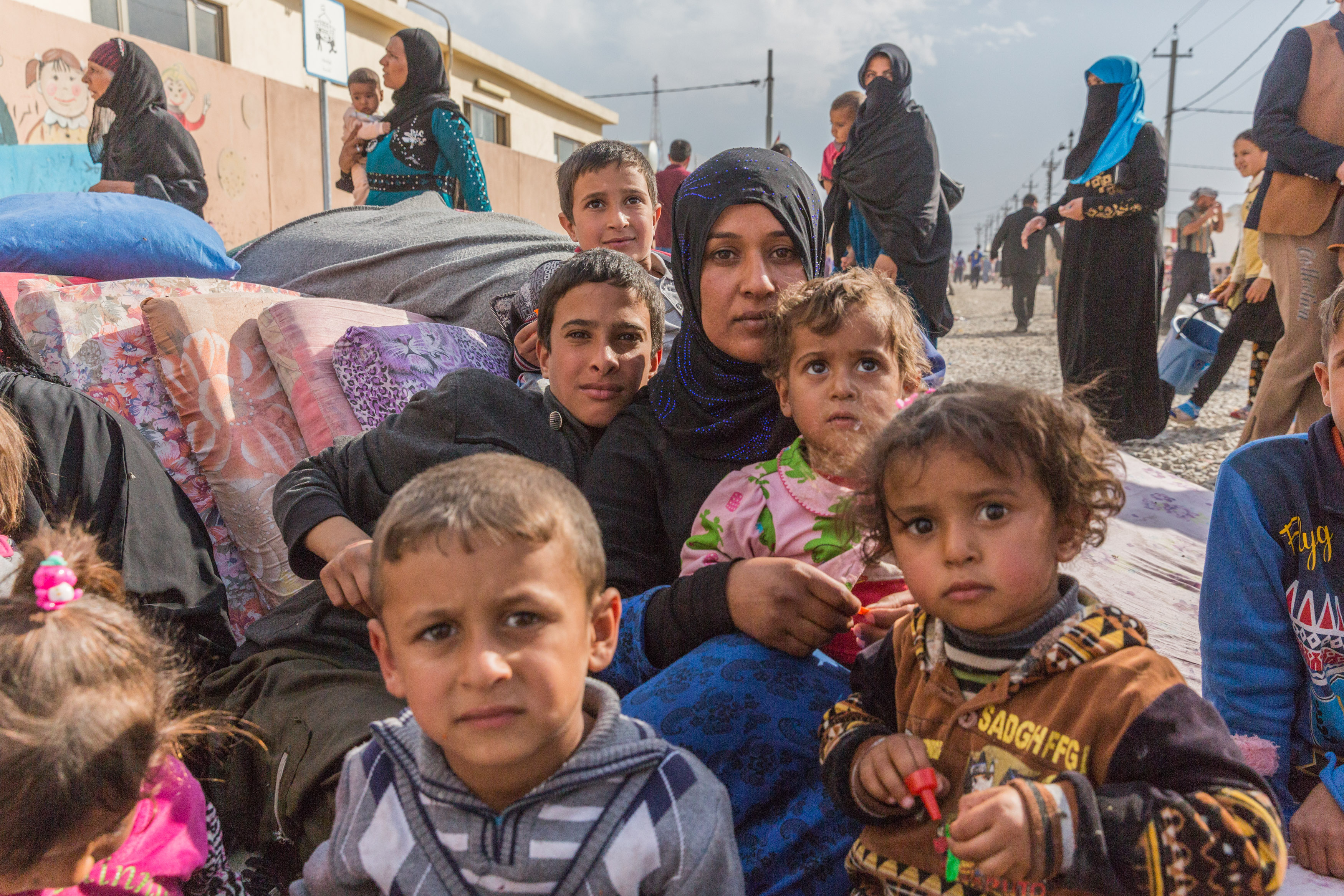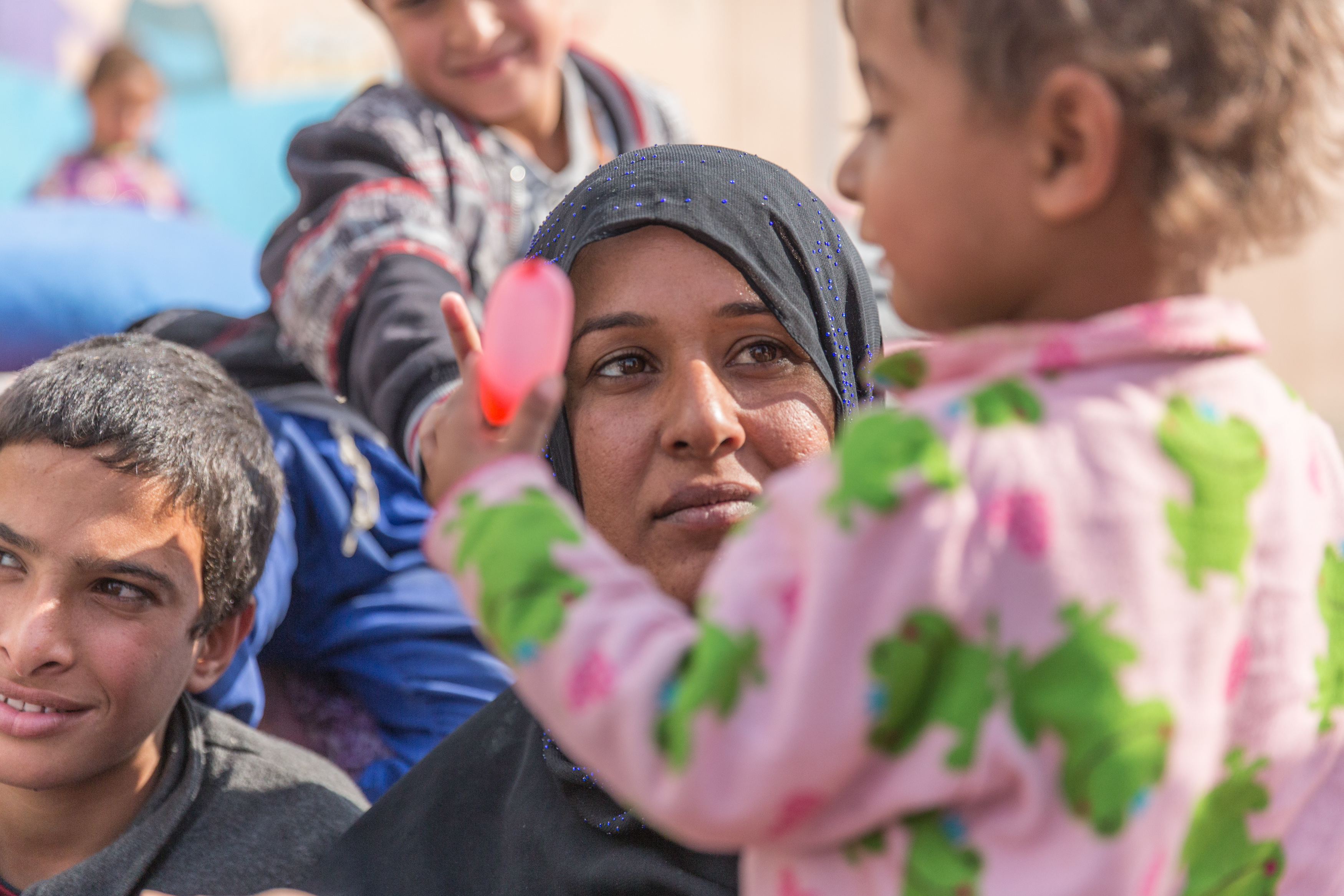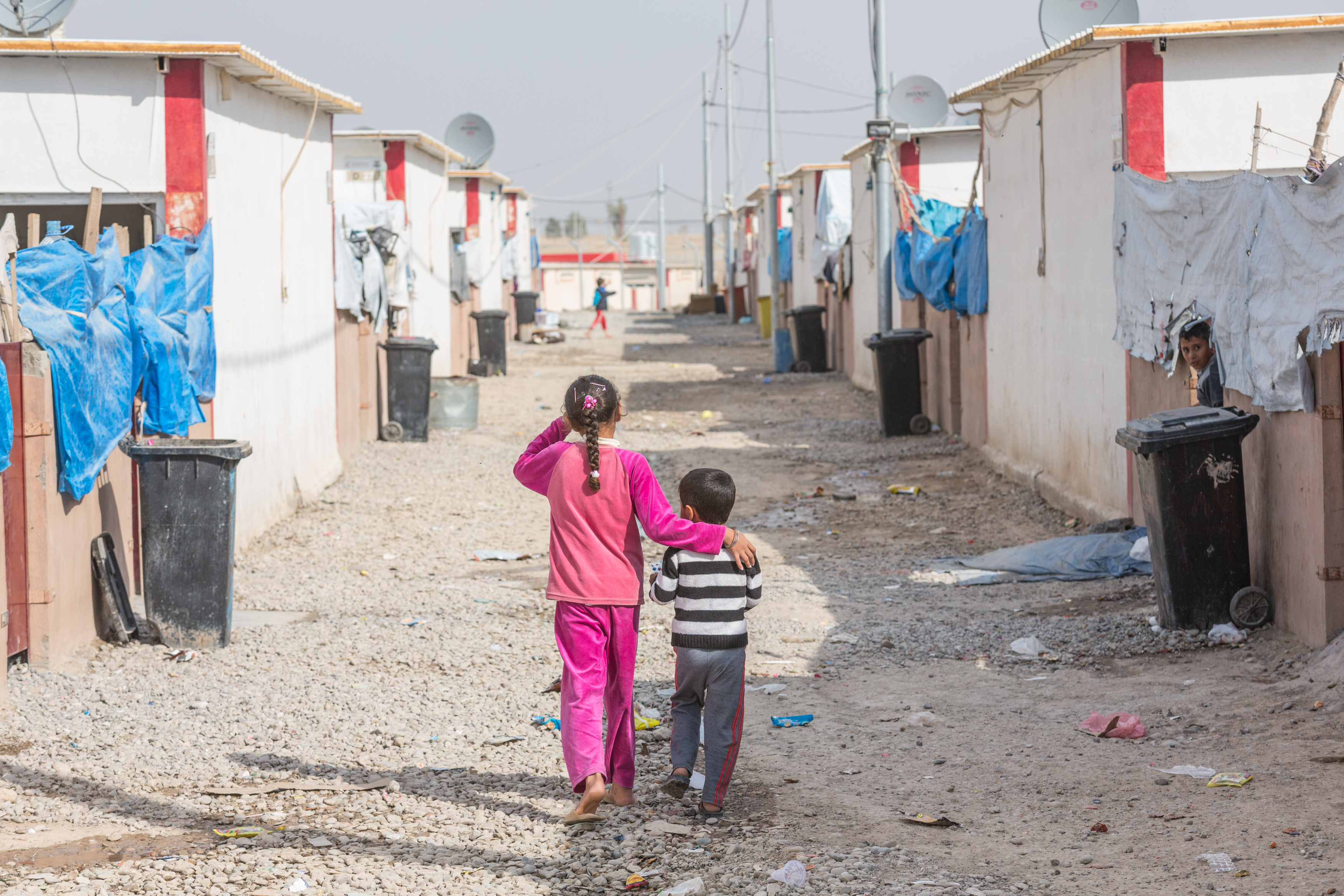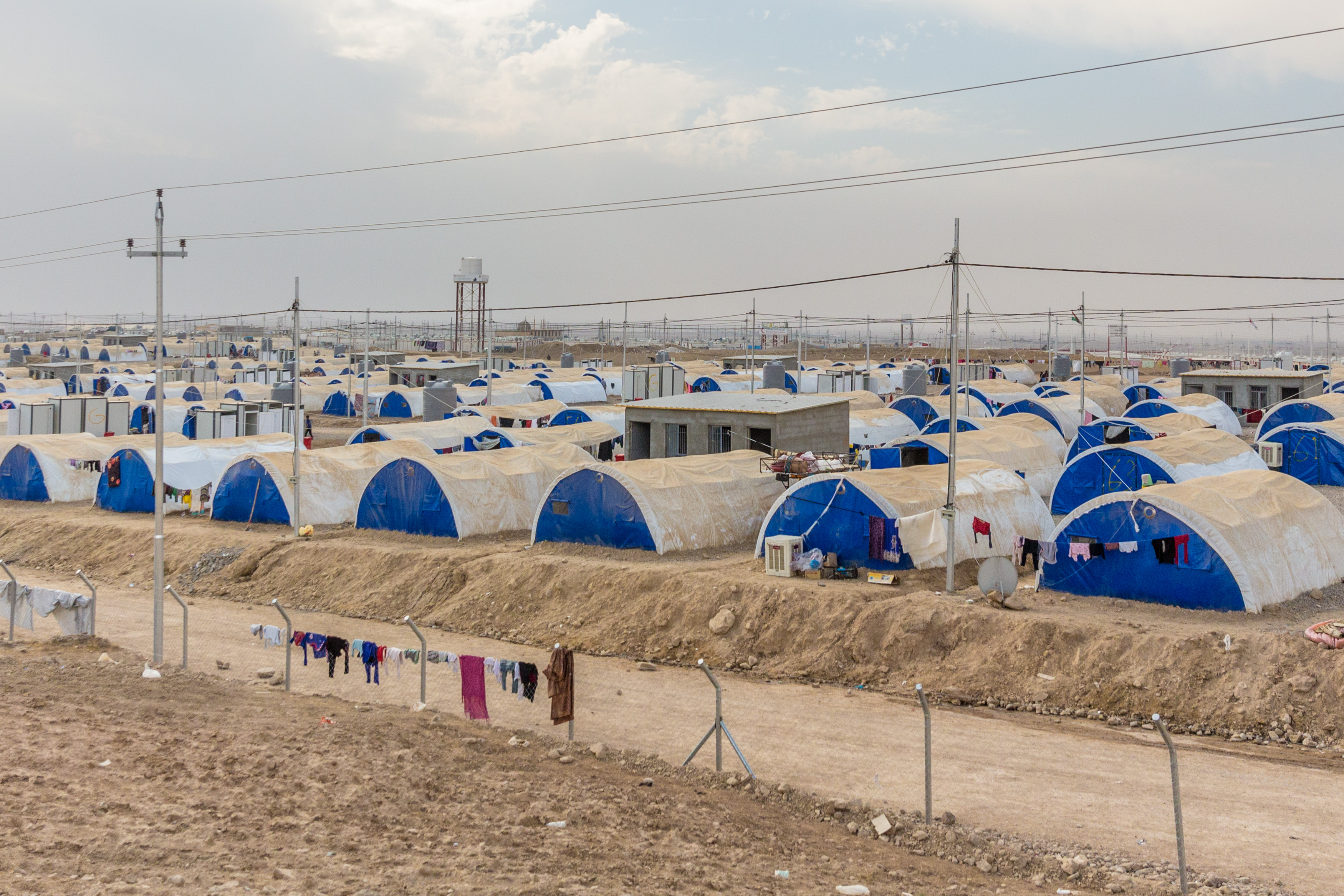Fleeing Mosul is the end of the beginning for homeless Iraqis
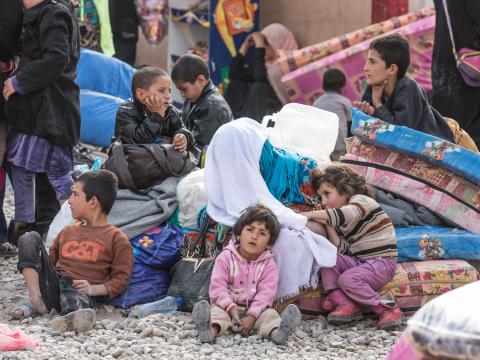
Each day a steady stream of families arrive at Debaga camp, where they pick up the pieces and start again
by Max Greenstein and Kayla Robertson, World Vision
Debaga, northern Iraq – The school ground is now a shambles, its entrance swamped with people sitting on mattresses, selling food, kicking the dust. It lies on the main road of Debaga, a swollen camp that’s home to more than 30,000 Iraqis, including the new arrivals fleeing Mosul. It’s full to the brim.
“The security here is good - there’s less bombing,” says Sabri*, 20, with a wry smile. The mother of four was made homeless two years ago when ISIL captured her hometown in Salahuddin, along with large swathes of the country’s north. Her family fled further north looking for safety - her husband Hamaad*, daughters Ajan* and Raqwa* and sons Mohammed* and baby Aman*. They found themselves in Hawija, only to be surrounded by ISIL again.
“Our lives have been very difficult,” Sabri explains. “But the biggest difficulty has been for my children. Under ISIL they were not allowed to play with each other. They weren’t allowed outside. They couldn’t go to school. At least they’re so young that they didn’t understand what was happening - the older boys in the village who were 12 years old were being recruited by ISIL as soldiers.”
She pauses to blow up a balloon for Aman, now 20 months old. In his short life, he has only known war.
Iraq is reeling from the continued onslaught in Mosul, with more people turning up at camps like Debaga by the day. More than 50,000 people have fled since 17October when the operation to re-take Mosul began. Worst still is that nearly half of these are children – a generation who have been denied a childhood.
This fact is not lost on Sabri.
“All I want is for us to be able to create a new life, where we can earn money to send the kids to school,” she says.
Salahuddin was re-taken from ISIL nearly a year ago. Yet that offers no comfort to families from the area. According to Sabri, there are still no services, no electricity and no running water. Their family home was demolished during the conflict. If they wanted to return, they’d have to pay rent - money they do not have.
“Our town has been liberated only to become empty. Now we’re left trying to create new lives in tents,” she says.
As the militant group is slowly pushed out of Mosul and its surrounding areas, districts like Salahuddin are a reminder of the bleak challenges ahead; a warning that rebuilding a community after conflict does not simply happen when the fighting ends.
For families who have fled war in Iraq, they have a long journey ahead of them to regain a sense of normality.
“My hope is that my children do not have to face this again,” Sabri says while looking at Aman. “That is my hope for their future.”
*Names have been changed to protect identities
